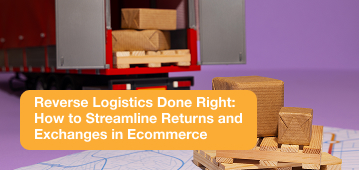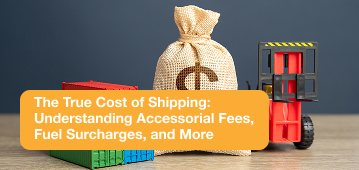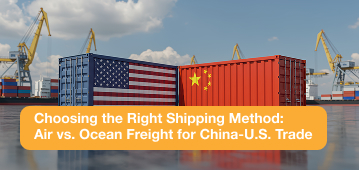LCL Shipment vs FCL Shipment
International shipping has become an indispensable part of our economy and to ensure it’s smooth running, one must have immense knowledge of the subject. Knowing which is better for your specific requirement – FCL or Full Container Load and LCL or Less than Container Load, should be the first question in your mind. But first, it is important to understand what these terms mean. Let’s deep dive into LCL Shipment vs FCL Shipment.
What do FCL and LCL stand for?
FCL and LCL are two commonly used terms for import and export trade in international business. If you are an exporter and need to accommodate your goods in one full container load, then your choice should be FCL or full container load for your cargo. In such a cargo, the finished goods in the cargo are owned by the same individual or company. Hence, whether or not your cargo is half-loaded, quarter-loaded, or fully loaded, you remain the sole owner of the particular shipment.
Suppose you are an exporter who needs to export or import goods but does not have enough to accommodate an entire container. In that case, you can book cargo with a consolidator who can help you console your goods along with the goods of a few other shippers. Such a shipment would be known as Less than Container Load or LCL.
If you are involved in international shipment, you must consider multiple factors while choosing an ocean freight arrangement. This may include the shipments’:
Volume: If you are looking for a cost-effective alternative for either exporting or importing your goods that are less than 1 CBM, then considering air freight would be rational. For shipment loads as little as 1 CBM to anything less than 10 CBM, LCL can be an ideal choice.
If you wish to ship anything more than 10 CBM, the difference in the price between a full container load and a less than container load is negligible, indicating the need to compare other factors before deciding.
Cost: Just as the name suggests, the full container load deals with the ownership of the finished goods in the cargo. Thereby, with FCL, you will have to pay the price of a full container irrespective of the fact that your container is filled or not.
For LCL, on the other hand, the prices are charged for the shipment per CBM. If you want to ship goods that can take up a lot of space, you will have to pay for all the space that other shipments wouldn’t be able to take up because of your goods.
Pace: Compared to FCL shipments, LCL can take up more time. This is because LCL requires the consolidation of other shipments before being exported or imported. This includes the time needed for loading, unloading, and separating goods at each port. Since FCL is an entire shipment to your name, the time taken would be much less.
Safety: FCL is just a one-stop shipment, hence, the FCL once sealed will only be opened at the final destination. LCL is accompanied by a variety of stops on its way for delivery of different shipments. Although the service provider would take utmost care of your goods, there is still a minuscule risk of damage, contamination, or loss since it experiences a lot of external handling.
Accessibility: During rush periods, finding FCL shipments can be difficult. LCL may provide a better and even faster option in situations like these since you wouldn’t have to wait for a container to become available.
Flexibility: LCL would be an ideal option for splitting your deliveries across several destinations. To do the same thing through FCL, one must expend extra costs on unloading, warehousing, and trucking to the delivery locations.
It’s time to choose one!
Going through the different factors and differences between FCL and LCL can be overwhelming. Hence, choosing between these two ways of shipment boils down to these six things: volume, cost, speed, security, availability, and flexibility.
Based on the essentials mentioned above, one can decide what is best for their requirement. With all the ambiguities, shipping goods overseas and dealing with the complexities in international freight, shipping no longer has to be confusing and daunting.
If you are still confused regarding the differences between FCL and LCL and wish to do a side-by-side comparison for ease, we, at ECU360, are here for you! You can simply log in to our website and we can help you do a rational analysis between the two while being your personal logistics control tower delivering end-to-end shipping services ranging from quotations, bookings, sailing schedules, and shipping instructions. All of this just at the click of a button!
With 24×7 accessibility, we make sure that our smart templates enable bookings within 30 seconds, and you get door-to-door rates with pickup and delivery in over 50 countries. Quick upload and access to your shipping instructions all in one place, accompanied with the feasibility to access departure schedules up to two weeks in advance, make your task as simple as possible!
Like





Comments